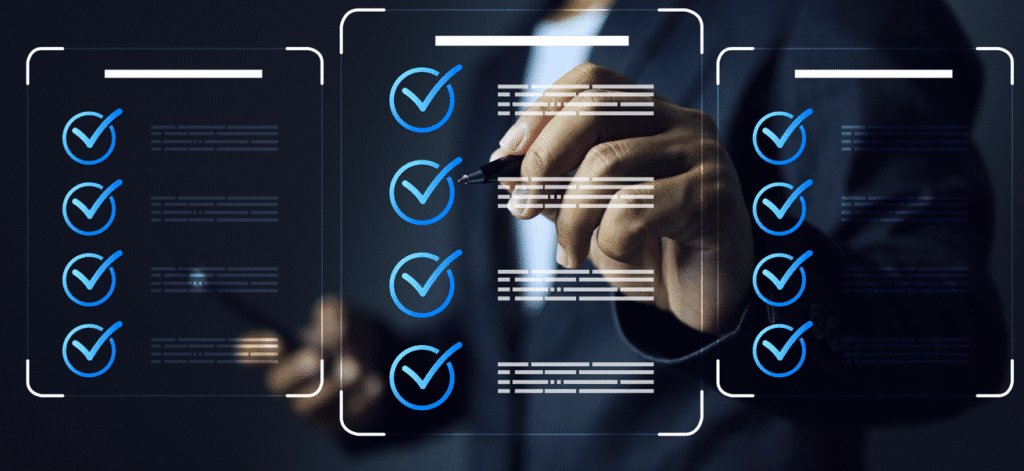As artificial intelligence (AI) continues to evolve the future of work, small businesses are jumping on board—automating customer service, streamlining operations, and tapping into productivity tools like ChatGPT. But while these advancements offer speed and efficiency, they also open the door to risks many businesses aren’t prepared for.
AI isn’t just a breakthrough—it’s a double-edged sword. If left unchecked, it can jeopardize cybersecurity, compromise sensitive data, and expose your company to compliance violations. Here’s what small businesses need to know.
1. AI Tools Are Only as Safe as Their Users
In 2023, multiple incidents made headlines where employees unintentionally leaked sensitive information into AI platforms. These weren’t sophisticated hacks. They were simple copy-paste mistakes—proprietary code, internal documents, and even client data fed into generative AI tools that IT didn’t approve or secure.
Small businesses are particularly vulnerable here. Without formal security policies, many rely on trust and good intentions. But without guardrails, even well-meaning employees can turn AI tools into liability machines.
Key risk: AI platforms often store user interactions to improve performance. This means confidential business information may end up in third-party systems outside your control.
2. Compliance Standards Don’t Always Keep Up with Innovation
Frameworks like GDPR, HIPAA, and PIPEDA were built around traditional data handling—not machine learning. When AI is used to automate decision-making or analyze personal data, it often operates in a legal gray zone. For example, if a health clinic uses an AI chatbot to handle patient inquiries, how is that data stored? Who has access? And is the process compliant with regional privacy laws?
According to SBS Cybersecurity, with the rise of AI, businesses must rethink how they handle risk assessments and third-party vendor evaluations, ensuring that not only the vendor but also the vendor’s specific AI-enabled products meet security standards.
Key risk: Small businesses that adopt AI without legal or IT oversight may unknowingly violate privacy laws, risking fines and reputational damage.
3. Cybercriminals Are Weaponizing AI, Too
AI isn’t just a business tool—it’s a weapon in the hands of cyber attackers. According to a 2024 academic study on AI and cybersecurity compliance, bad actors already use machine learning to bypass traditional defences. Think of phishing emails that mimic human tone flawlessly or malware that adapts in real-time.
Worse still, the same AI tools businesses use for automation can be exploited if poorly configured. A public-facing chatbot with no restrictions? That’s a goldmine for data scraping and reconnaissance.
Key risk: Attackers can use your own AI systems against you if you don’t secure them properly or limit their capabilities.
4. Lack of AI Governance Is a Growing Liability
Most small businesses don’t have an AI policy—let alone one that outlines how data is used, how models are trained, or how tools are vetted. This lack of governance creates gaps in accountability. Who’s responsible if the AI makes a wrong decision? What happens when an employee uses a tool that is not approved by IT?
The team at CurrentWare emphasizes the importance of establishing a framework for AI usage. This includes employee training, policies with approval processes, and usage monitoring to catch missteps early.
Key risk: Without AI usage policies, you increase your exposure to data leaks, shadow IT, and uncontrolled third-party risks.
5. Practical Safeguards for Responsible AI Adoption
Despite the risks, abandoning AI altogether isn’t the solution. Instead, small businesses should focus on adopting AI responsibly.
Here are a few steps to get started:
• Limit access to AI tools: Only allow approved tools that your IT or security team has reviewed.
• Train your staff: Ensure employees understand what data can and can’t be shared with AI systems.
• Update your compliance protocols: If regulated, revisit your security policies for data and privacy to ensure they account for AI use.
• Monitor for shadow AI: Use endpoint monitoring or acceptable use policies to detect unsanctioned tools before they become problematic.
• Stay informed: Cybercriminal tactics evolve quickly, especially with AI. Revisit and update your cybersecurity practices regularly to match emerging threats.
In Conclusion
AI promises to level the playing field for small businesses—but only if adopted with care. As powerful as these tools are, they introduce new layers of risk that traditional cybersecurity and compliance practices may not cover. The solution isn’t to fear AI—but to respect it.
Small businesses that take the time to understand and govern their AI usage will avoid pitfalls and build safer, smarter, and more resilient operations.
References
“AI Cybersecurity Risks and How to Safeguard Sensitive Data CurrentWare, 15 June 2023, www.currentware.com/blog/cybersecurity-risks-of-ai
Knutson, Chad. “Understanding the Risks and Rewards of AI.” SBS CyberSecurity, December 2024, https://sbscyber.com/blog/risks-and-benefits-of-ai
Need more info?
Take the next step—contact us today for a free cybersecurity strategy session and ensure your business is fully protected!
Our Cyntry experts can identify strategies to safeguard your data and systems. At Cyntry, simplifying the compliance journey and strengthening your security posture is what we do best.
Book a no-cost 30-minute compliance and cybersecurity strategy session at Cyntry.com.



